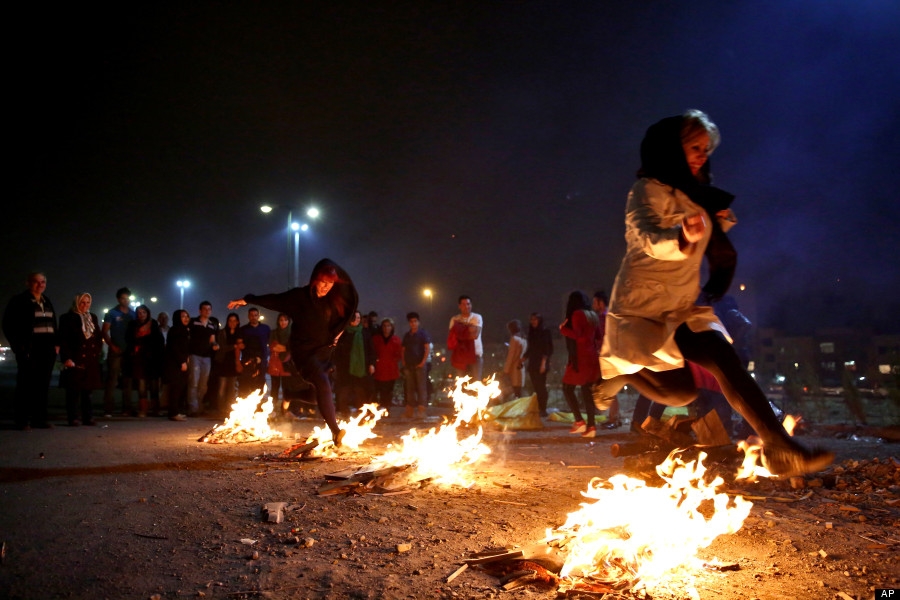The night before the last Wednesday of the Persian year is celebrated by Iranians as Chahārshanbe Suri. Sur means feast, party or festival in Persian, and it is widely described as fire festival. This festival is the celebration of the light (the good) winning over the darkness (the bad); the symbolism behind the rituals are all rooted back to Zoroastrianism.
The tradition includes people going into the streets and alleys to make bonfires, and jump over them while singing the traditional song Zardi-ye man az (ane) to, sorkhi-ye to az (ane) man (“az-ane to” means belongs to you); This literally translates to “My yellowness is yours, your redness is mine,” with the figurative message “My paleness (pain, sickness) for you (the fire), your strength (health) for me.” The fire is believed to burn out all the fear (yellowness) in their subconscious or their spirit, in preparation for New Year.
Serving different kinds of pastry and nuts known as Ajil-e Moshkel-Goshā (lit. problem-solving nuts) is the Chahārshanbe Suri way of giving thanks for the previous year’s health and happiness, while exchanging any remaining paleness and evil for the warmth and vibrancy of the fire.
Since 1979 and in particular more in recent years, the Iranian authorities has imposed imposes sever restrictions to prevent the people from Chahārshanbe Suri. The security forces warn the people not to engage in this celebration under the pretext of safety but the real concern is that the Iranian youth use the opportunity to protest against the regime and restrictions on individual freedom.
According to tradition, the living are visited by the spirit of their ancestors on the last days of the year, and many children wrap themselves in shrouds, symbolically re-enacting the visits. They also run through the streets banging on pots and pans with spoons and knocking on doors to ask for treats. The ritual is called qashogh-zany (spoon beating) and symbolizes the beating out of the last unlucky Wednesday of the year (See also Trick-or-treating).
There are several other traditions on this night, including: the rituals of Kūze Shekastan, the breaking of earthen jars which symbolically hold one’s bad fortune; the ritual of Fal-Gûsh (lit.Divination by ear), or inferring one’s future from the conversations of those passing by; and the ritual of Gereh-goshā’ī, making a knot in the corner of a handkerchief or garment and asking the first passerby to unravel it in order to remove ones misfortune.



